Introduction
The New National Education Policy, which the Government of India amended in 2023, is responsible for developing policies for education in schools and institutions. Significant improvements in the new policy are made to position India as a global intellectual champion.
The objective is to accomplish a 100% Gross Enrollment Ratio (GER) in schooling by 2030, except for medical and legal disciplines. It will involve unifying education from nursery to high school.
A new pattern structure 5+3+3+4 resembles the existing 10+2 education pattern.
What is NEP
The New National Education Policy (NEP) is a structure that outlines a nation’s educational development vision, objectives, and approaches. Based on the nation, the policy’s specifics may vary, but in essence, it offers direction on many educational issues, including curriculum, teacher preparation, assessment, and infrastructure development.
A new pattern structure 5+3+3+4 resembles the existing 10+2 education pattern.
A new pattern structure 5+3+3+4 resembles the existing 10+2 education pattern.
A New National Education Policy’s primary goals are to:
- Provide every student adequate access to a high-quality education.
- The quality of education will be improved by upgrading and modernizing the curriculum, teacher preparation, and assessment mechanisms.
- You can increase students’ employability by strongly emphasizing vocational and skill-based education.
- Encourage educational innovation and research.
- Encourage the use of technology in the classroom to enhance learning.
FEATURES OF NATIONAL EDUCATIONAL POLICY:
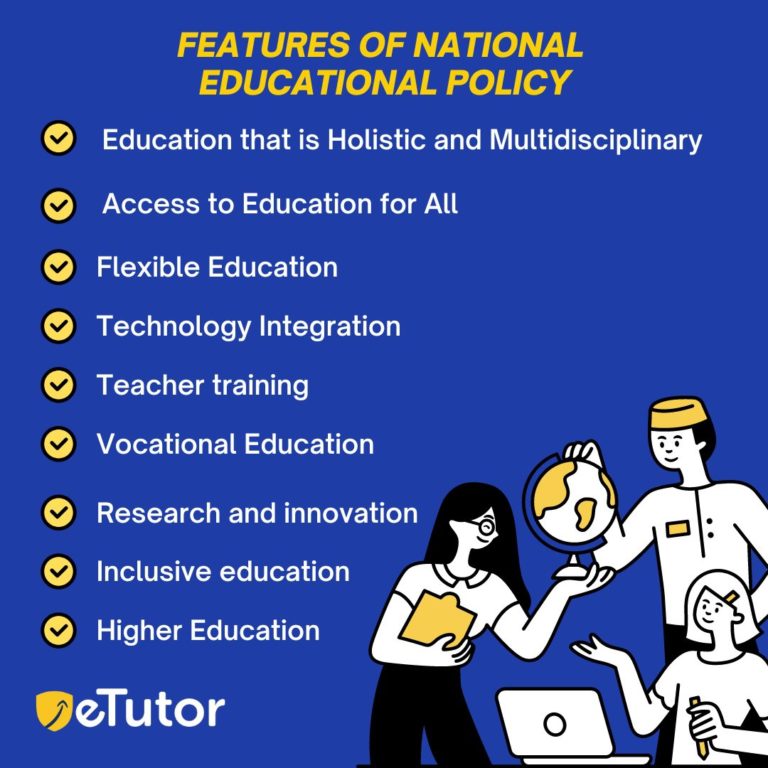
The New National Education Policy has the following features:
Education that is Holistic and Multidisciplinary: The NEP aspires to offer a holistic education that fosters creativity, critical analysis, and a scientific mindset. It tries to encourage holistic development and lessen the stress of memorization.
Access to Education for All: The New National Education Policy (NEP) aspires to provide education for all, from early childhood through higher education. By 2035, it hopes to raise the gross enrollment ratio (GER) to 50%.
Flexible education: The NEP supports flexible and modular education, allowing students to select their programs and advance quickly.
Teacher training: The NEP strongly emphasizes the significance of teacher education and training. It strives to improve teaching abilities and offer teachers ongoing professional development.
Vocational Education: The NEP seeks to enhance skill development and vocational education. It seeks to give pupils the abilities and information needed for employment in various fields.
Research and innovation: The NEP places a strong emphasis on the value of research and innovation in the field of education. Its goal is to advance research and development across many industries, including education.
Inclusive education: Providing equitable opportunity to all students, including those from underprivileged backgrounds.
STAGES OF NATIONAL EDUCATION POLICY:
The stages of NEP are
- Foundational
- Preparatory
- Middle and
- Secondary
Foundational stage from 2 to 8 years(5 years)
According to New National Education Policy standards, 3 years of the child will come under preschool, Anganwadi education, and the next two years under primary classes 1 and 2. This stage will mainly focus on oral drilling to kids, fun-based activities, and teaching methods.
Preparatory stage from 8 to 11 years:(3 years)
During the third to fifth grades preparatory stage, kids will concentrate on language enhancement and numeracy skills. This stage focuses on building relationships in the classroom, play, and activity-based learning.
Middle stage from 11 to 14 years:(3 years):
As per NCF 2023, this stage will focus on the critical learning objectives traditionally employed in our educational system.
This stage would be focused on differentiated instruction in the arts, social sciences, crafts, and science courses.
Secondary stage from 14 to 18 years:(4 years)
Classes from 9th to 12th come under this stage. The biggest difference in these classes is the move to an interdisciplinary system where students can select from various topic combinations according to their abilities and interests instead of being rigidly categorized into the Arts, Science, and Commerce categories.
Once again, this level strongly emphasizes critical analysis and agility in the cognitive process.
Benefits Of New National Education Policy
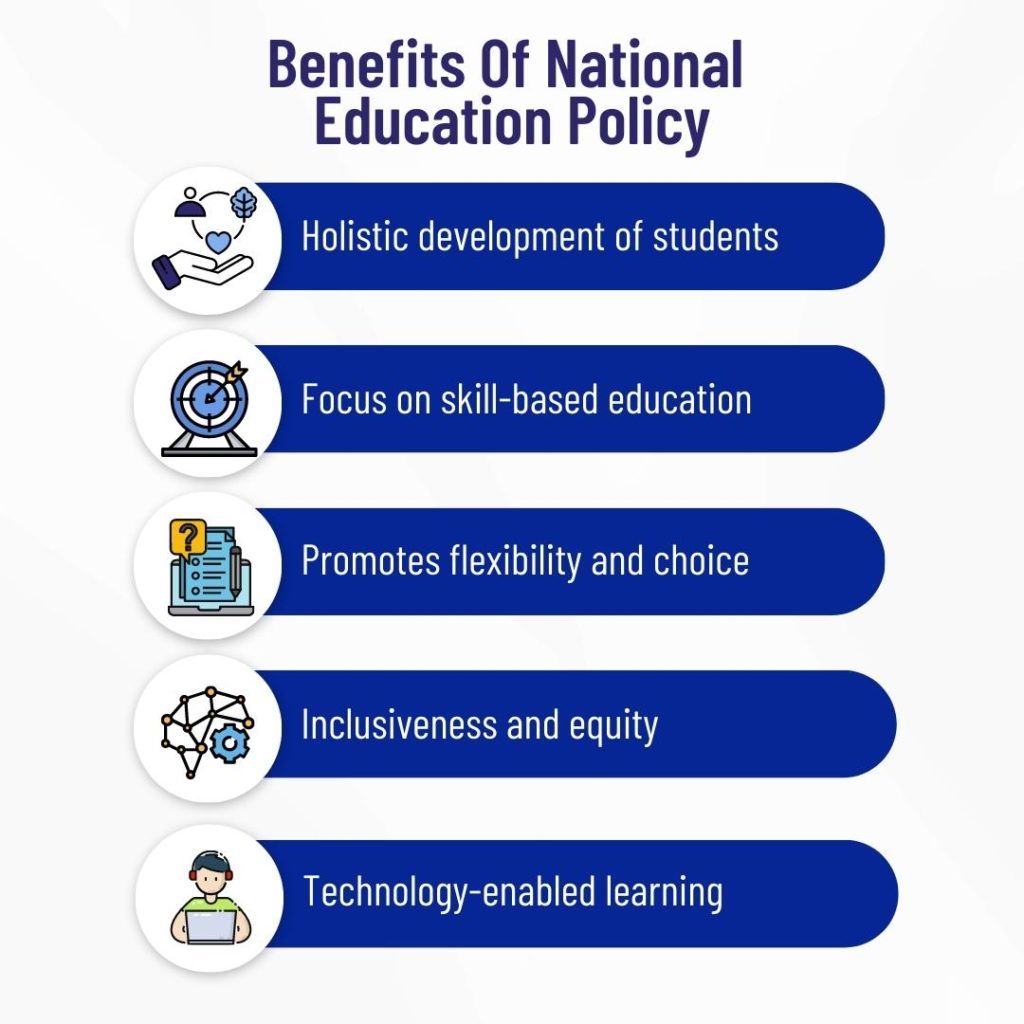
Here are some of the benefits of the New National Education Policy:
Holistic development of students: The NEP emphasizes the holistic development of students, which means that it aims to develop their cognitive, emotional, social, and physical abilities. It encourages a multidisciplinary approach to learning, enabling students to acquire various skills and competencies.
Focus on skill-based education: The NEP recognizes the importance of skill-based education and aims to make it an integral part of the education system. It emphasizes developing 21st-century skills such as critical thinking, creativity, communication, collaboration, and problem-solving.
Promotes flexibility and choice: The NEP promotes flexibility and choice in education, allowing students to choose their courses and subjects based on their interests and aptitudes. It also encourages integrating vocational education and practical training in mainstream education.
Inclusiveness and equity: The NEP aims to promote inclusiveness and equity in education by addressing the needs of marginalized and disadvantaged groups such as girls, children with disabilities, and children from economically weaker sections of society. It also recognizes the importance of early childhood care and education for the overall development of children.
Technology-enabled learning: The NEP recognizes the importance of technology-enabled learning and aims to promote the use of digital technologies in education. It encourages the development of digital infrastructure and the use of e-learning resources to enhance the quality of education.
What is the Registration Policy of NEP
The NEP 2023 does not have a specific registration policy. Still, it emphasizes the need for universal access to education, digital infrastructure, recognition of prior learning, and accreditation and regulation of education providers to ensure quality and transparency.
The Vision of this Policy
The NEP 2023 policy vision is to transform India’s education system into a vibrant and dynamic one that will enable all learners to reach their full potential and contribute to developing a knowledge-based society.
Conclusion:
The New National Education Policy 2023 is a massive reform urgently needed and intends to make the Indian educational system more accessible, adaptable, and learner-centered. The new strategy is intended to solve the current issues and inadequacies in the educational field and offer high-quality education to everyone, regardless of socioeconomic status.
The governments, schools and universities, teachers, students, parents, and the industry must all work together to implement the new NEP policy effectively.
Frequently Asked Questions
The new NEP policy 2023 is a comprehensive strategy focusing on issues like accessibility, overall development, quality of teaching, multilingualism, flexible learning, and continuous learning to reform the Indian educational system.
On July 29, 2020, the Union Cabinet approved the National Education Policy (NEP) 2020, a new education policy for India. The former education policy, which went into effect in 1986 and was last updated in 1992, was replaced by the NEP 2020.

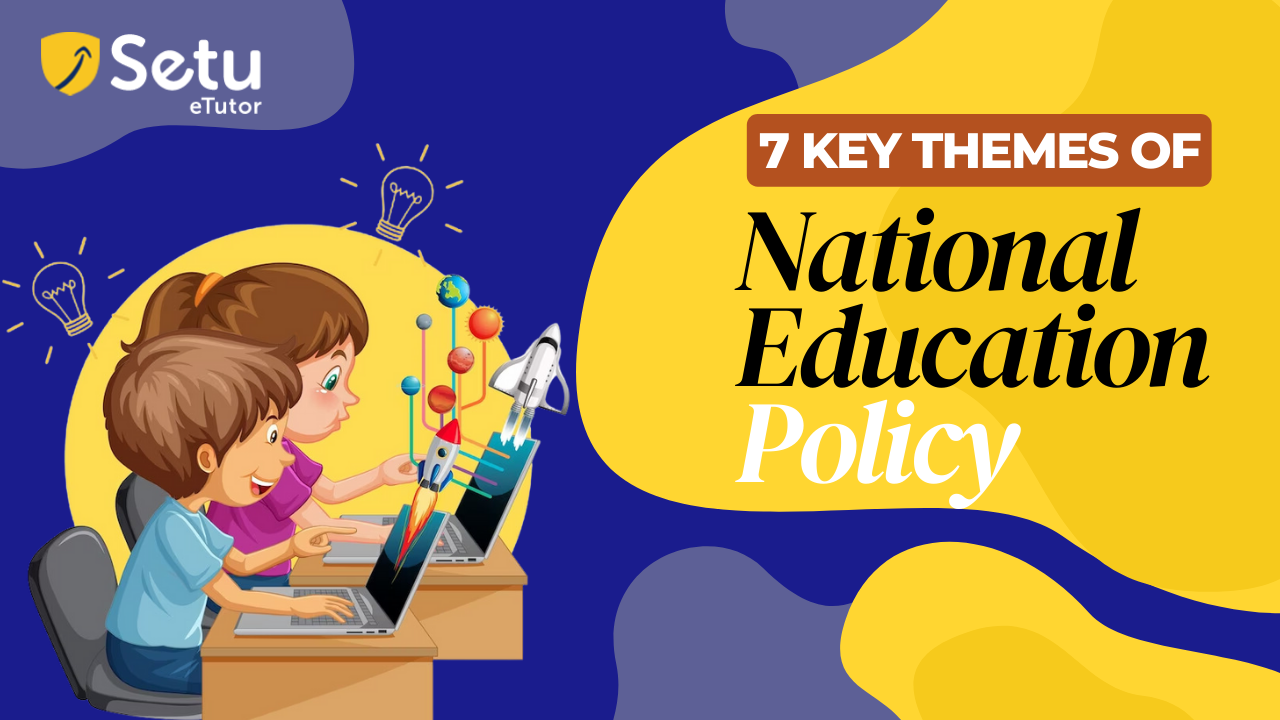





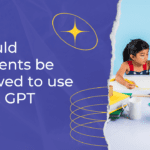

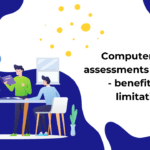

Leave a reply